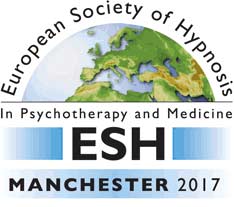
Marie-Elisabeth Faymonville
Professor Marie-Elisabeth Faymonville - head of the Pain Clinic at Liege University Hospital in Belgium, has operated on more than 6,000 patients using hypnosis combined with a light local anaesthetic. She enjoys teaching patients self-hypnosis and self-care learning such that they are able to get out of the vicious circle of chronic pain.
Hypnotic strategies to optimize the management of pain
Since 1992, hypnosis has become routine practice in our surgery services. Revivication of pleasant life experiences has served as the hypnotic substratum in a series of over 9,000 patients. In retrospective studies followed by randomised prospective studies, we have confirmed the usefulness of hypnosedation (hypnosis in combination with conscious IV sedation) and local anaesthesia as a valuable alternative to traditional anaesthetic techniques 1.
Medical hypnosis is also a safe and effective complementary technique in the treatment of chronic pain syndromes. Learning self-hypnosis/self-care improves not only pain but also psychological factors such as depression, anxiety, pain disability and improves patient’s global impression of treatment effectiveness 2.
The relevance of mind-body interventions to reduce emotional distress in breast cancer patients was also studied. Self-hypnosis/self-care learning decreases distress and fatigue, insomnia and increases quality of life, as well as emotional functioning in these cancer patients 3.
In a context of a socio-economic crisis, it is essential to develop health intervention treatments with a significant effectiveness combined with a low cost for the patient. Futures studies should consider comparing self-care learning and self-hypnosis interventions separately to disentangle the effect of hypnosis from the effect of self-care learning in the management of chronic pain.




